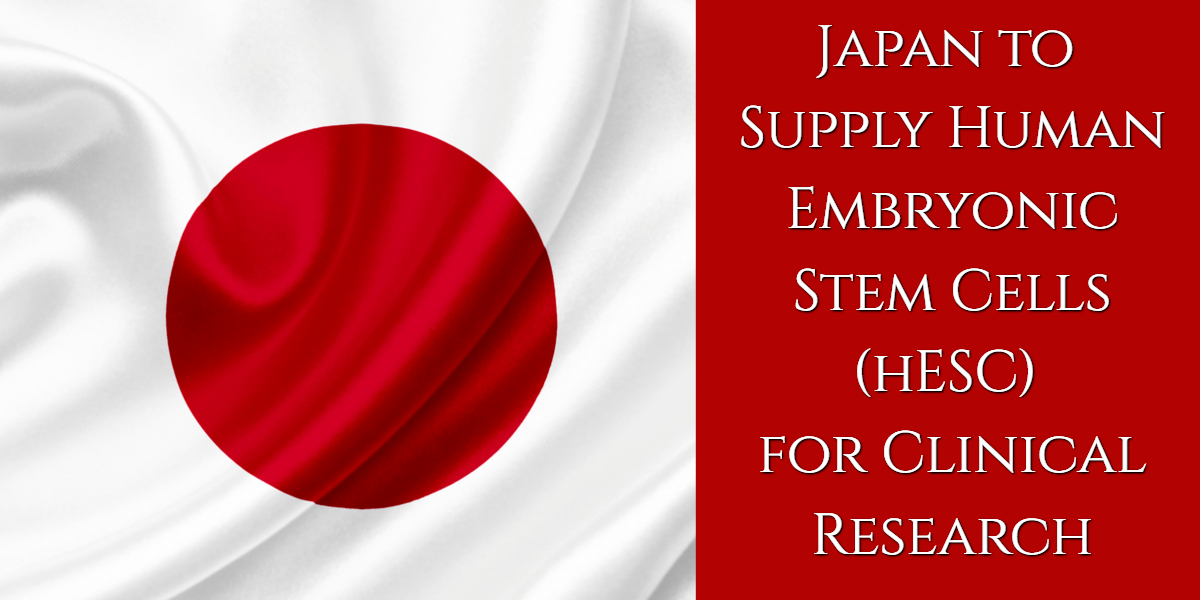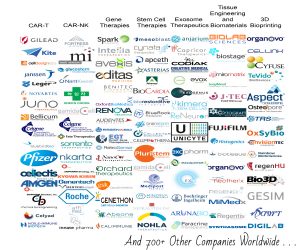Kyoto University has announced that it will start providing human embryonic stem cells (ES cells) by July 2018 to universities and companies within Japan for clinical trial applications. This is a world-first, as most countries have been hesitant to support wide-spread production and distribution of this controversial cell type.
Previously Japan limited the use of human embryonic stem cells to basic research, because the cells are produced from human embryos, making them a highly controversial cell type. In 2014, the Japanese government revised it guidelines, making possible the use human ES cells in clinical studies, as well as laboratory research.
As stated by the Nikkei Asian Review, “Kyoto University has established an environment to produce ES cells from unused fertilized eggs from infertility treatments, and provide the cells to outside parties. The prominent university has already stockpiled iPS cells and provided them to universities and research institutions in Japan.”
Japan as a Leader in Pluripotent Stem Cells
Embryonic stem cells (ESCs) and induced pluripotent stem cells (iPSCs or iPS cells) are the two types of pluripotent stem cells that exist. The importance of pluripotent stem cells is that they can self-renew and differentiate into any of the three germ layers, the ectoderm, endoderm, and mesoderm. These three germ layers can differentiate to form all tissues and organs within the human body.
iPS cells were first produced from mouse cells in 2006 and human cells in 2007. They are tissue-specific cells that can be reprogrammed to become functionally similar to embryonic stem cells. Because of their powerful ability to differentiate in a wide diversity of tissues and their non-controversial nature, iPS cells are well-suited for use in cellular therapy and regenerative medicine.
In contrast, embryonic stem cells are highly controversial, because they are derived from blastocysts, a stage in the developing embryo. To limit (although not solve) the ethical concerns, Japan is using fertilized eggs that were left over following fertility treatments. Many people outside the science community don’t realize that hundreds of thousands of fertilized embryos are created by fertility clinics each year that do not get used for reproduction. If left unused, these fertilized eggs remain indefinitely frozen or discarded as medical waste.
For Japan’s purposes, a hospital within the city of Kyoto provided the fertilized eggs to Kyoto University for their use in embryonic stem cell production.
On May 23, 2018, the The Japan News announced that Kyoto University had successfully derived its first embryonic stem cells for use in clinical trial applications. The cells will be selling for approximately ¥30,000 yen (USD $250) for universities and twice that (¥60,000 / USD $500) for commercial entities.
What Will the Future Hold for Japanese Investments in Regenerative Medicine?
Prior to this decision to support the development of ESCs for clinical purposes, Japan had previously announced its intention to be a global leader in the clinical applications of iPS cells. In 2016, Japan accelerated its position as a hub for regenerative medicine research, largely driven by support from Prime Minister Shinzo Abe who has identified regenerative medicine and cellular therapy as key to the Japan’s strategy to drive economic growth.
Additionally, Japan’s Education Ministry stated it wold spend 110 billion yen ($1.13 billion) on induced pluripotent stem cell research during the next 10 years, and the Japanese parliament has been discussing bills that would “speed the approval process and ensure the safety of such treatments.”[1]
In Japan, the Japanese government expects to have 50% of the population over 65 within 20 years, making regenerative medicine an extremely high priority for the country.
To learn more, view the “Global Regenerative Medicine Industry Database – Featuring 700+ Companies Worldwide.”
[1] Dvorak, K. (2014). Japan Makes Advance on Stem-Cell Therapy [Online]. Available at: http://online.wsj.com/news/articles/SB10001424127887323689204578571363010820642. Web. 8 Apr. 2015.





















Tell Us What You Think!